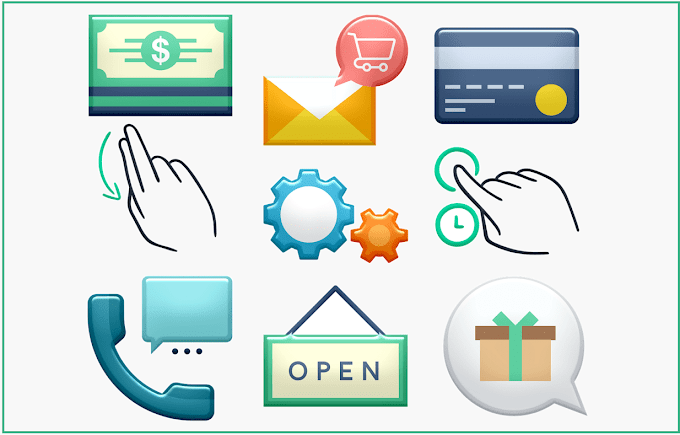
In the last couple of years, video conferencing software is seeing an unprecedented boom. Which gives us - users a yet unseen row of opportunities to choose from. The sheer amount of video conferencing apps now is so unimaginably big that it may seem daunting to even dabble into it. Nevertheless, we are here to help you get the sense of pros and cons of every popular software and discern for yourself what suits you.
So, the obvious question arises: What’s the best choice in such a multiplicity of opportunities? Naturally, there is no one definite answer that will put everything to the rest. Every app has a variety of functionalities and features that others don’t, so there is no one cure for everything.
Depending on the will, whims and needs on your side, the right choice will vary. The most often case of use of Video Conferencing is highly formal business meetings and tightly sealed classified discussions of a dubious sort. Be as it may, business-related Video Conferencing software is, dare I say, obligated to have a basis of features like:
- Security
- Simplicity
- Bug-free application
- Be universally available
- Reasonably priced business edition
- At least 100 participants in the conference
So, it is only reasonable to present the list as a “Popular Ten” trope, to ease into peculiarities of each software and its features.
Top 10 Video Conferencing Software You Can Choose for Your Business:
1. Skype
The first and arguably the most famous video conferencing software on the market. With a long history of tribulations and trepidations, Skype was one of the first publicly available Video Conferencing software. Not to mention the company behind Skype (none other than Microsoft themselves.) So, it most certainly exudes reliability and potency, right? Not without flaws, that are especially visible, when comparing to the newly engendered contestants, Skype has a share of great and bad things about itself.
The great:
● Cross-platform
● The adequate support team and substantial user base
● Nostalgia
The bad:
● The clunky user interface, especially on mobile devices
● Still not free of pesky bugs and inconsistencies in video and sound quality
● Unreliable updates with unnecessary features added
● Limit on amount of participants
● Non-encrypted conversations, unless manually enabled
2. Zoom Meeting
The recent sensation in a world of Video Conferencing. Compatible and available on a wide array of devices and IOS. However, recent privacy concerns raised quite a lot of negative buzz around Zoom, so tread with caution.
The great:
● Available across different platforms
● User friendly
● Decently priced
● Classroom facilitation with great additional features
The bad:
● 40-minute group meeting limit (Basic Plan only)
● Privacy concerns about data hoarding
3. FreeConference
Simple and straightforward are the best epithets to describe FreeConference. No actual software download is necessary, as FreeConference works in browsers. The free version is pretty barebones and lacks security.
The great:
● No downloading required
● Prices are reasonable (9,99$) plus a 2-month trial
● Straightforward and not cluttered user interface
The bad:
● Only 5 participants limitation
● Quite restricted in terms of features in free version
● Lack of decent security measures
4. Google Hangouts Meet
Another widely known conferencing software, with a great focus on business-related matters. Hustle-free use with no required software installation makes it quite a stand-out.
An additional plus is an integration of G Suite, especially scheduling and planning with Google Calendar is an over the top comfort. Basic G Suite account will give an opportunity to invite up to 25 people to a conference call. Joining the conference is as easy as it gets.
The great:
● Derisively easy to create and join conferences
● 100 participants conferences
● Highly accessible, as you are not required to download anything
● On par sound and video quality
The bad:
● 25 Participants limitation
● Featureless
Also Read: Best Automation Testing Tools
5. Lifesize
A worthy contender with practical and useful features behind its numerical back. The most prominent of the bunch is, by far, a cloud-based video collaboration platform. Basically, by paying a monthly fee, you are getting on-server hardware calculations, meaning your computer frees up from any burdening load.
Why do I need that, you may ask. The reason being is the second feature of Lifesize - 4K Video support. 4K being quite demanding, the inclusion of a cloud-based video platform seems like a reasonable turn. If you want to raise your awareness in cloud-based technologies, this article does a great job of explaining the current wave of popularity of cloud video conferencing.
The great:
● 4K Video Support
● Cloud-based Video Platform
● 300+ participants allowance
● The app is not required
The bad:
● Pricey
● Hitchless internet connection is required
● Unpolished mobile and desktop apps
6. GoToMeeting
A mobile-forward application that provides audio and video calls plus screen share feature. Straightforward and alluringly simple to operate within, GoToMeeting offers a grand Smartphone video conferencing experience. Standard tier offers an ample amount of room (150 participants), with a potential upgrade offering up to 3000 participants in an Enterprise plan.
The great:
● Mobile-friendly
● Participants/Price ratio in the Standard plan is great
● Application is working flawlessly
The bad:
● Participant/Price ratio of the higher tiers are not reasonable
7. Cyberlink U Meeting
Taiwanese software company with a history dating back to its foundation in 1996. U Meeting is the company’s video conferencing software child. With a uniquely bizarre feature called “PerfectCam” and a bunch of other distinctive features, it encapsulates the company’s flair. Quite a steep pricing curve for higher tiers may startle some.
The great:
● Web-based
● Generous free tier
● Unique features
The bad:
● Pricing is steep
● No video recording
8. BlueJean
A video conferencing platform nurtured by the company situated in a dazzling land of California. BlueJean provides a cloud-based video conferencing experience. There is no free tier, however, 30 days trial to relish upon is provided. With the support of Dolby voice, the sound is both crispy and clear. Video quality is consistent, without any noticeable graphical artifacts.
The great:
● Great overall audio and video quality
● 30-day trial
The bad:
● No free tier
● Limited participants
● Costly
9. Cisco WebEx Meetings
Cisco WebEx offers arguably the best free tier experience amongst other competitors. Free version not only enables you to conduct HD video meetings but even allows you to invite a staggering amount of participants - 100, as well as offers screen sharing. Security also deserves a separate appraisal with AES 256-bit encryption. Ensuring your conversation and meetings remain classified.
The great:
● God-sent free tier
● Secure and safe
● HD video quality
The bad:
● Convoluting interface and overall newbie-unfriendly
Also Read: Best ITSM Tools List
10. Click Meeting
Small but capable video conferencing software that offers a great webinar experience despite strict limitations on the number of interlocutors. Also worth mentioning that the software is decently priced, although there is no free tier.
The great:
● Impeccable webinar experience
● Humbly priced
● Filled with various useful features
The bad:
● Only 6 participants at a time
● The support department is low-tier
● Obsolete Adobe Flash usage
It is evidently clear that nowadays, it is easier than ever to find a video conferencing software that suits you and your business meeting requirements. It is only through hands-on experience; one can decide exactly how well this or that software will satisfy their needs. So, needless to say, experiment and test the apps listed and find something that fits specifically your whimsical nature.




![Performance Marketing - What Is it & How It Works [+ 6 Tools You Can Use]](https://blogger.googleusercontent.com/img/b/R29vZ2xl/AVvXsEj0akcIPU36HHfqWoYrb2LCMNG8OvxPb9drUYKWJZvSXmfbJG0OrjN5jfzTFDmT-9MKcuZt-G-66PiLlIVjgX1DwCNzHeIMW0pjW7W3IB2rZYzx4ISbL2T6JC4M38eubqHxQ3e71l2_n7oxh2f2QdV3d1prJ6z9HQNsSyfjtO18diLxEZg-5wD-I6RINFY/w680/performance_marketing-min.png)





0 Comments